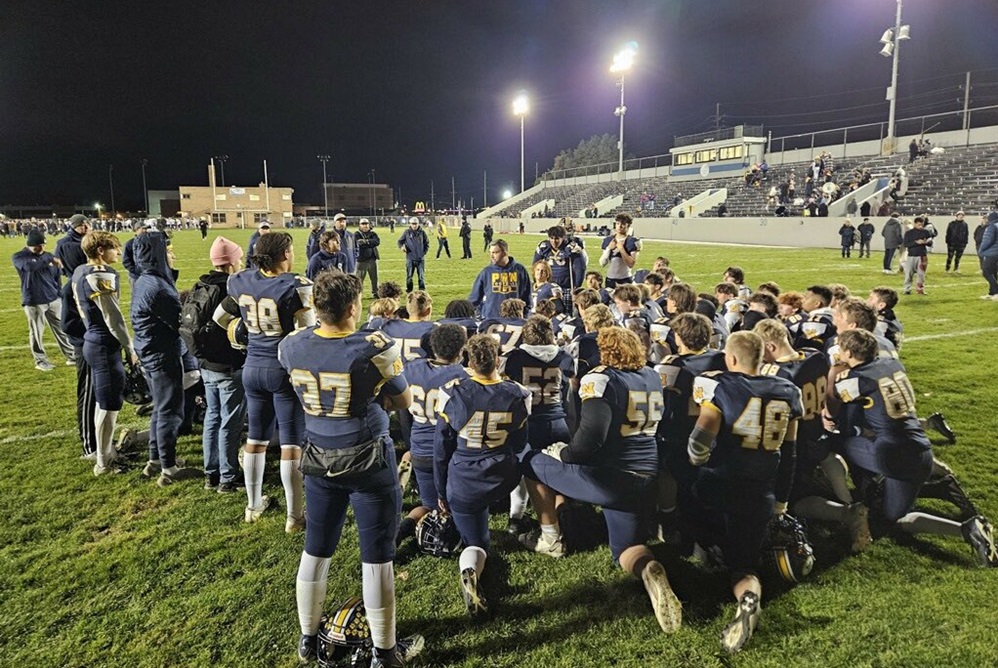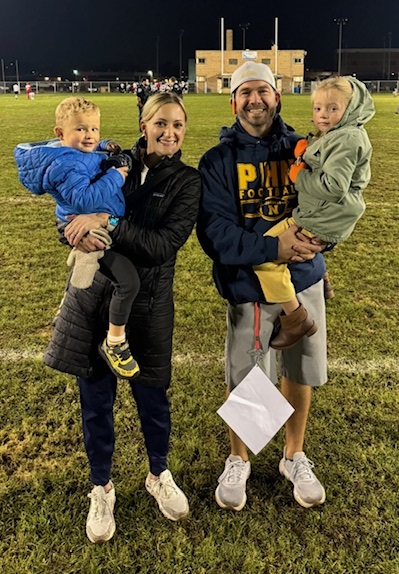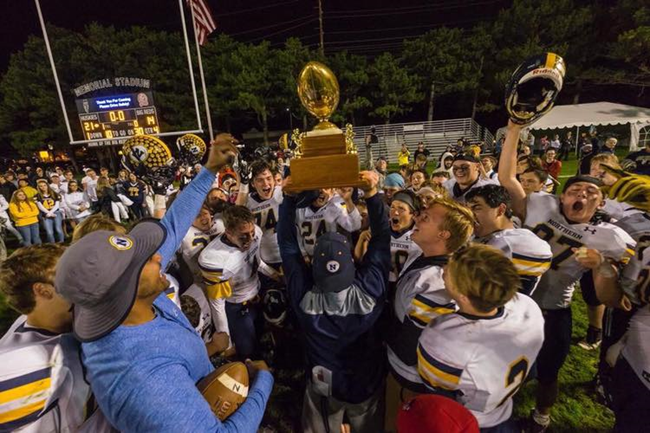
Strategize for First Parent Meeting
February 25, 2015
 By Scott Westfall
By Scott Westfall
MSU Institute for the Study of Youth Sports
Coaches often cite parents as one of the most uncontrollable and frustrating aspects of coaching.
Let’s face it, when this relationship goes south, there can be pent-up frustration and hard feelings between the two parties which can result in a negative experience for everyone involved – especially the player who is often caught in the middle.
Establishing positive relationships with parents should happen from the moment you stand in front of them at your annual parent meeting.
Throughout this meeting, parents will be asking themselves: “Can I trust this coach with my child?” “Will this coach be fair in his/her decisions?” and “Will this coach always have my child’s best intentions in mind?”
In order to put them at ease, you must do everything possible to establish yourself as a person of integrity who is altruistic and 100 percent trustworthy. Below is a coaching checklist that will help you establish trust and credibility with your team’s parents:
Transparency – Do things openly and share information as much as possible. If something bad happens on your team, be sure that you do not sweep it under the rug. Be open and consistent with your decisions, and always follow through on what you say you are going to do.
Demonstrate Respect – Be polite and sincere with parents and let your actions show that you care. Sometimes the little things you do will resonate louder than the big things.
List Expectations – Have high expectations for the conduct of both the players and parents in your program. List these expectations, distribute them, and then talk about them with the parents. Meanwhile, let them know what they can expect from you in return (proper dress attire, appropriate language, great sportsmanship, impeccable conduct, proper treatment of game officials, etc.).
Express Loyalty – As often as possible, be sure to praise your players, assistants, and the people associated with your program. Be sure that you never take credit for other people’s work, and remember to use the word “we” as often as possible.
Be Accountable – This means taking the blame for bad results– even when it wasn’t necessarily your mistake. Admitting when something goes wrong on your watch doesn’t mean that you are a bad coach or you’ve lost control of your program. True leaders are accountable for the mistakes that happen in their programs.
Deliver Results – This is not necessarily wins and losses. Instead, deliver results on the things that really matter, such as developing a respectable team, coaching players with all passing grades and having players who do not get into trouble or break the law.
No parent meeting would be complete without a healthy dose of paperwork. To make it easier for parents to keep these papers organized, try to color-coordinate the forms and go over them slowly one at a time.
Below are the basic documents you should supply at the parent meeting (Note: Try to also have these documents accessible on your team’s website):
Coaching Philosophy – Drafting a coaching philosophy will allow parents to better understand who you are and the reasons you coach. In this document, be sure to include your fundamental beliefs along with your personal approach to coaching. (Note: Be honest in this section – Do not advertise yourself as one type of coach, but then act like another). Include a lot of “I statements” such as, “I coach for the purpose of teaching life lessons,” “I believe that student comes before athlete,” and, “I am demanding but never demeaning.” Developing and drafting a coaching philosophy not only gives parents insight into you and your program, but it also gives you an opportunity to reflect upon why you do things the way you do.
Team Policies – This is perhaps the most important document you will distribute to your team’s parents. It should list all team rules pertaining to player conduct, grades, eligibility, attendance, discipline, communication, and of course playing time! Include statements such as, “Playing time is earned – not given,” “All decisions will be made based on what is best for the team,” and, “If you have a problem, please talk to the coach.” Inform parents that student-athletes will receive equal opportunities but not equal things. These opportunities include instruction, off-season strength and conditioning programs, and support for their classes. How well student-athletes take advantage of these opportunities (attendance, focus, effort, attitude, and self-discipline) often dictates their levels of success. (Note: Before distributing this document, make sure your school’s administration/athletic director supports your team policies 100 percent).
Student-Athlete Character Contract – While many schools have had an athletic code of conduct in place for years, teams today are including an additional written set of norms for players to follow. A character contract outlines how players agree to conduct themselves as a person, student, and athlete. If you want to create more buy-in, consider drafting this contract each season with your players!
Parent Pledge Form – This document establishes the expectations you have for the parents in your program. Be sure that you include expectations for their conduct at games, having a positive disposition around the team, the treatment of players on your team along with the treatment of your opponents, letting the coaches coach, and how to act toward game officials.
Team Calendar – Be sure to include detailed information on the times and locations of all practices, team events, games, and places that players need to be. If changes are made to the team calendar throughout the course of the season, be sure you inform parents through several forms of communication (a printed note sent home, an announcement on the team website, email list, social media, etc.).
Athletic Physicals – While most doctors’ offices have a copy of these blank forms on hand, it is convenient for parents to have access to them through your school.
Athletic Fees (if you are a “pay for play” district) – Some districts have a mandatory athletic participation fee, while other districts do not. Some districts have a waiver form for students who are on free/reduced lunch. In any of these cases, make sure you are on top of this information so you can properly inform your team’s parents at the meeting.
Conflict Resolution – The occasional conflict is almost inevitable while working in an emotionally charged environment such as athletics. However, conflicts can often be avoided or at least more easily resolved through proper forms of communication.
- Inform parents that you are always willing to listen to their concerns; let them know that you would prefer they address an issue with you, rather than taking their frustrations to the next game and venting to anybody in the bleachers who is willing to listen.
- In your team documents consider a statement such as, “The best tool we have in our relationship is an open line of communication. My door is always open and so is my mind.”
- Finally, be sure to let them know that if they are upset about something to not send it through email. Email is good for information, but not communication. Try to communicate and resolve conflicts in person as much as possible.
Once you have established trust and credibility with your team’s parents, you can start building the relationship. Caution: Building a relationship with your team’s parents is not developing close friendships with them. Becoming close friends with parents actually can lead to bigger problems as you open yourself to criticism of playing favorites. Instead, build working relationships, generated through mutual respect and understanding for each other’s position in the quest of helping the young individual become a successful student-athlete. These working relationships help parents understand their optimal level of involvement, such as where and how they can fit into your program. Below are some tips for building working relationships with parents:
- Learn their names and where they work.
- Learn what the family likes to do when they are outside of the school setting.
- Invite them to a team event such as a team picnic, fundraiser, or team trip.
- Ask parents for help with certain jobs. Many parents appreciate being asked to help with team functions as it gives them an opportunity to get to know other parents and makes them feel like they matter.
- Call them at least once per season to say hello, report on their child’s progress, and ask if there is anything you can do to be of assistance.
- Offer additional support for their child. Helping the student-athlete outside of coaching with things such as academics and typical teen issues shows you care.
- Offer support to the parents as well. If they are struggling to get a message across to their child, oftentimes a coach sending or reinforcing the same message makes all the difference. As a coach you hold a powerful platform with your student-athletes; use it to help with their development and maturity whenever possible.
Establishing yourself as a trustworthy and credible coach is the first step in getting parents to buy into your program. Meanwhile, providing parents with sufficient information will help them feel like you are keeping them informed and want them as a partner in your program.
Creating working relationships with parents takes time, but will be the cornerstone in establishing a positive experience for the years their children are involved with your program. While some parents may have a different background or mindset, listing your expectations will help them better understand your team’s culture and how they can fit in.
If done right, these positive working relationships should alleviate much of your coaching frustration and pay tremendous dividends in the future.
Scott Westfall has spent the last 10 years as a teacher, coach, and athletic director in Fort Collins, Colo. He currently is working on his Doctorate at Michigan State University, with an emphasis in Sport Psychology and Athletic Administration, and assisting the MHSAA with its student leadership programs. Westfall is a former athlete who participated in football, wrestling, tennis and cross country at the high school level, and rugby at the collegiate level. He can be reached at [email protected].

Rebuilt Culture Driving Success as Roelens Steps Away at Port Huron Northern
By
Paul Costanzo
Special for MHSAA.com
November 13, 2024
The spark that helped ignite the past decade of success for the Port Huron Northern football program came early in Larry Roelens’ tenure, and, ironically, during the one full season that the Huskies finished with a losing record under him.
 Northern, which had just three winning seasons over the previous 15, started 0-2 in 2015, but rattled off four straight wins under its first-year coach, who was noticing that things were changing for the better.
Northern, which had just three winning seasons over the previous 15, started 0-2 in 2015, but rattled off four straight wins under its first-year coach, who was noticing that things were changing for the better.
“I’ll be honest, Northern wasn’t in a very good state when I got the job,” Roelens said. “But for me and the guys that stayed around (on the coaching staff), I could never have done what I did without the guys on my staff. They’re like family to me and to my kids; they call them uncles. We went in with the mindset that we have to change the culture.
“We started 0-2 that first season, but then won four in a row. We lost three tough games to end the season, but that kind of changed the culture. We built on that, and the next year went 6-3.”
That next season was the beginning of the most successful stretch of football during the playoff era for the Huskies, as they made the postseason nine straight years, tripling the number of playoff appearances they had made during the 40 years prior.
The ninth postseason appearance was the last for Roelens, however, as he stepped down as Northern coach following a Division 2 District Semifinal loss to Warren De La Salle Collegiate on Oct. 24. He has accepted a position as assistant principal at the school, and administrators in the district are not allowed to hold head coaching positions.
“Honestly, that was a very hard decision to make for me,” Roelens said. “I went into education to be a coach and a teacher. But it was very much based on a family decision. I’ll be able to spend more time with my kids (Audrey, 5, and Brady, 3), and coach their teams.”
 Roelens leaves the Northern program in as good a place as it’s been, perhaps ever.
Roelens leaves the Northern program in as good a place as it’s been, perhaps ever.
He was 69-30 over his 10 seasons, with the nine playoff appearances and four Macomb Area Conference Blue titles. Northern also won four postseason games under Roelens.
Before he took over the program, Northern had three playoff appearances in program history – 1986, 1999 and 2010 – and a single postseason victory.
The program had not won eight games in a season since 1987, but did so four times under Roelens, including with a 10-2 mark in 2018, which matched the school record for wins.
“It’s pretty crazy,” said Northern senior quarterback Ty Fletcher. “He kind of morphed the program to what it is today. … I feel like, when he started getting into the playoffs and they had all those playoff appearances in (consecutive) seasons, that started that trend of winning football. Then we ended up staying there and being a competitive team.”
As it so often does, the success built an excitement around the program that found its way through the youth levels.
“We were all coming up through the youth teams, and we all stayed together on the freshman level, and we always talked about how everyone wants to play for Northern,” Fletcher said. “About how cool it was to play under the lights there.”
A lot of that excitement at the youth level has also been buoyed by a string of Division I college talent that has come through the program during Roelens’ time, led by Braiden McGregor. The defensive end was among the top recruits in the country in 2020 and played a key role on Michigan’s national title team. He is now playing for the New York Jets.
He wasn’t a one-off for the Huskies in terms of DI talent, as Luke Fletcher is now in his second year at Eastern Michigan, and current juniors Amir Morelan and Lincoln Watkins have both received Power 4 offers.
“Braiden’s class, we had a few kids that went on to play college football,” Roelens said. “That right there was proof that, even in a small town, they’re going to find you if you’re good enough. I think that pushed a lot of kids, because they started to understand that if you’re good enough and you work hard enough, they’ll find you.”
Roelens even being at Northern in the first place was a bit of a surprise for those in the area, as he was a star athlete at cross-town rival Port Huron High. Roelens played quarterback at Port Huron and went on to play baseball at Saginaw Valley State after graduating in 2004.
 He student taught at Northern during the 2009-10 school year, but even then he helped out with the Port Huron football program.
He student taught at Northern during the 2009-10 school year, but even then he helped out with the Port Huron football program.
His journey with Northern athletics began with assistant roles in the basketball and baseball programs later that year, and in the fall of 2010 he became the JV head football coach.
For four of the next five seasons he was on the Huskies staff, before taking over the program prior to the 2015 season.
With his new position, he’ll remain in the school and around the coaches and players in the program. And, while the thrill of coaching was something Roelens cherished, those relationships are what he’s valued most.
“I’ve been very blessed with the people I’ve had around me throughout those 10 years,” he said. “The support I had from Northern, the support of the parents, the Northern community, it’s been a blessing. My family, my wife and kids, they’ve all been tremendous.”
 Paul Costanzo served as a sportswriter at The Port Huron Times Herald from 2006-15, including three years as lead sportswriter, and prior to that as sports editor at the Hillsdale Daily News from 2005-06. He can be reached at [email protected] with story ideas for Genesee, Lapeer, St. Clair, Sanilac, Huron, Tuscola, Saginaw, Bay, Arenac, Midland and Gladwin counties.
Paul Costanzo served as a sportswriter at The Port Huron Times Herald from 2006-15, including three years as lead sportswriter, and prior to that as sports editor at the Hillsdale Daily News from 2005-06. He can be reached at [email protected] with story ideas for Genesee, Lapeer, St. Clair, Sanilac, Huron, Tuscola, Saginaw, Bay, Arenac, Midland and Gladwin counties.
PHOTOS (Top) Port Huron Northern football coach Larry Roelens, middle, is surrounded by his kneeling players during a postgame huddle. (Middle) Roelens holds daughter Audrey, and wife Kelsey holds son Brady on the field. (Below) Roelens hoists the Brick Fowler Trophy after a Northern win over rival Port Huron. (Photos courtesy of the Roelens family.)

